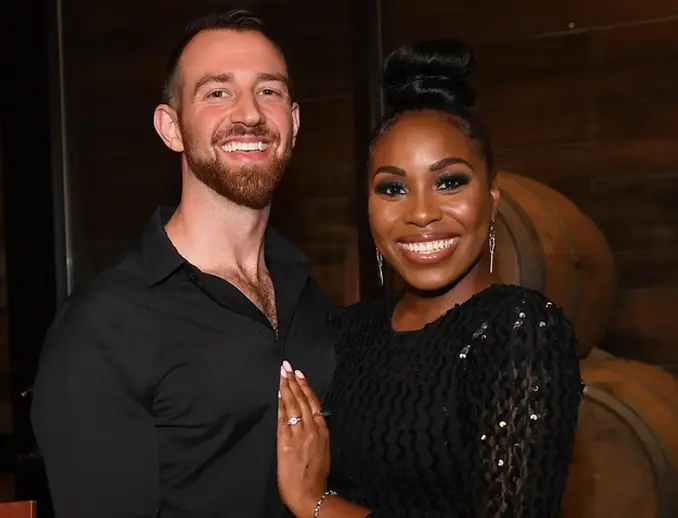 Interracial dating, while increasingly common and celebrated in many parts of the world, still comes with its own set of unique challenges. As societies become more diverse and open-minded, individuals from different racial and cultural backgrounds are forming meaningful relationships. However, navigating these relationships can sometimes require additional understanding, empathy, and resilience. In this blog post, we will explore some of the challenges faced by interracial couples and discuss ways to foster strong, healthy relationships despite these obstacles.
Interracial dating, while increasingly common and celebrated in many parts of the world, still comes with its own set of unique challenges. As societies become more diverse and open-minded, individuals from different racial and cultural backgrounds are forming meaningful relationships. However, navigating these relationships can sometimes require additional understanding, empathy, and resilience. In this blog post, we will explore some of the challenges faced by interracial couples and discuss ways to foster strong, healthy relationships despite these obstacles.
1. Cultural Differences
One of the most common challenges in interracial relationships is navigating cultural differences. These differences can manifest in various ways, from language barriers and traditions to food preferences and family dynamics. For example, one partner may come from a culture that highly values collectivism and family involvement, while the other may prioritize individualism and independence.
While these differences can enrich a relationship by introducing new perspectives and experiences, they can also lead to misunderstandings if not addressed openly. To overcome this challenge, it’s important for both partners to educate themselves about each other’s cultural backgrounds and actively communicate their expectations and values.
2. Family and Social Acceptance
Unfortunately, not all families or social circles are accepting of interracial relationships. Some couples may face resistance or disapproval from family members who hold traditional or prejudiced views. This can create tension within the relationship, as one or both partners may feel torn between their family’s expectations and their commitment to each other.
To address this challenge, couples must work together to establish boundaries with their families and decide how to handle any negativity they might encounter. It’s also important to lean on supportive friends or communities who can provide encouragement during difficult times.
3. Stereotypes and Prejudices
 Interracial couples often face external judgment in the form of stereotypes or biases. Society may impose assumptions about their relationship dynamics based on racial or cultural stereotypes, leading to unwarranted scrutiny or microaggressions. For example, people may question the authenticity of the relationship or make inappropriate comments about the couple’s future children.
Interracial couples often face external judgment in the form of stereotypes or biases. Society may impose assumptions about their relationship dynamics based on racial or cultural stereotypes, leading to unwarranted scrutiny or microaggressions. For example, people may question the authenticity of the relationship or make inappropriate comments about the couple’s future children.
Dealing with such prejudices requires patience and a united front. Couples should have open conversations about how they will respond to such situations and support each other when faced with discrimination or ignorance.
4. Identity and Self-Reflection
Being in an interracial relationship may prompt individuals to confront their own biases or preconceived notions about race and culture. This process of self-reflection can be both enlightening and challenging. For example, one partner may realize that they have unknowingly benefited from privilege, while the other may need to explain their lived experiences with racism or discrimination.
Acknowledging these dynamics is essential for building a strong foundation of mutual respect and understanding. Couples should strive to create a safe space where both partners feel comfortable sharing their thoughts and feelings without fear of judgment.
5. Raising Children
For interracial couples who choose to have children, navigating issues of identity and heritage can be a complex but rewarding experience. Mixed-race children may face questions about their identity or experience societal pressures to “choose” one part of their heritage over another. Parents must work together to celebrate both sides of their child’s background and provide them with the tools to navigate these challenges confidently.
This process often involves intentional efforts to expose children to both cultures through traditions, language, food, and community involvement. It’s also important for parents to address any instances of discrimination their children might face and teach them how to respond effectively.
6. Public Perception
 Even in today’s progressive world, interracial couples may still encounter stares, comments, or questions from strangers in public spaces. While such reactions may not always be overtly hostile, they can still feel intrusive or uncomfortable. Over time, this external attention can take a toll on a couple’s emotional well-being.
Even in today’s progressive world, interracial couples may still encounter stares, comments, or questions from strangers in public spaces. While such reactions may not always be overtly hostile, they can still feel intrusive or uncomfortable. Over time, this external attention can take a toll on a couple’s emotional well-being.
To combat this challenge, couples should focus on building a strong internal bond that allows them to weather external pressures together. Having open discussions about how public perceptions affect them individually and as a couple can help foster resilience.
7. Intersectionality
Interracial relationships often intersect with other aspects of identity, such as religion, socioeconomic status, or sexual orientation. These layers of complexity can add additional dimensions to the challenges couples face. For example, an interracial same-sex couple may encounter discrimination based on both their relationship’s racial dynamics and their sexual orientation.
Understanding the unique intersectionality within each relationship requires empathy and a willingness to learn from one another’s experiences. Couples should seek out resources and communities that address their specific challenges to help them feel supported.
Building Strong Interracial Relationships
While the challenges of interracial dating are real, they are by no means insurmountable. Here are some strategies for building a strong foundation:
1. Prioritize Communication: Open and honest communication is key in any relationship but is especially important in interracial relationships. Discuss cultural differences, personal experiences, and potential challenges early on.
2. Educate Yourselves: Take the time to learn about each other’s cultures, histories, and experiences with race. This knowledge will help you better understand your partner’s perspective and strengthen your connection.
3. Seek Support: Surround yourselves with friends, mentors, or communities who celebrate diversity and inclusion. Having a support network can make it easier to navigate challenges together.
4. Celebrate Your Differences: Instead of seeing cultural differences as obstacles, view them as opportunities for growth and enrichment. Embrace each other’s traditions and find ways to incorporate them into your shared life.
5. Be Patient: Building a strong interracial relationship takes time and effort. Be patient with yourselves and each other as you navigate challenges and grow together.
Interracial dating offers an opportunity to break down barriers, challenge stereotypes, and celebrate diversity in all its forms. While it comes with its own set of challenges, these obstacles can be overcome through open communication, mutual respect, and a commitment to understanding one another’s experiences. By embracing both the joys and complexities of interracial relationships, couples can create meaningful connections that transcend societal expectations and pave the way for a more inclusive future.



